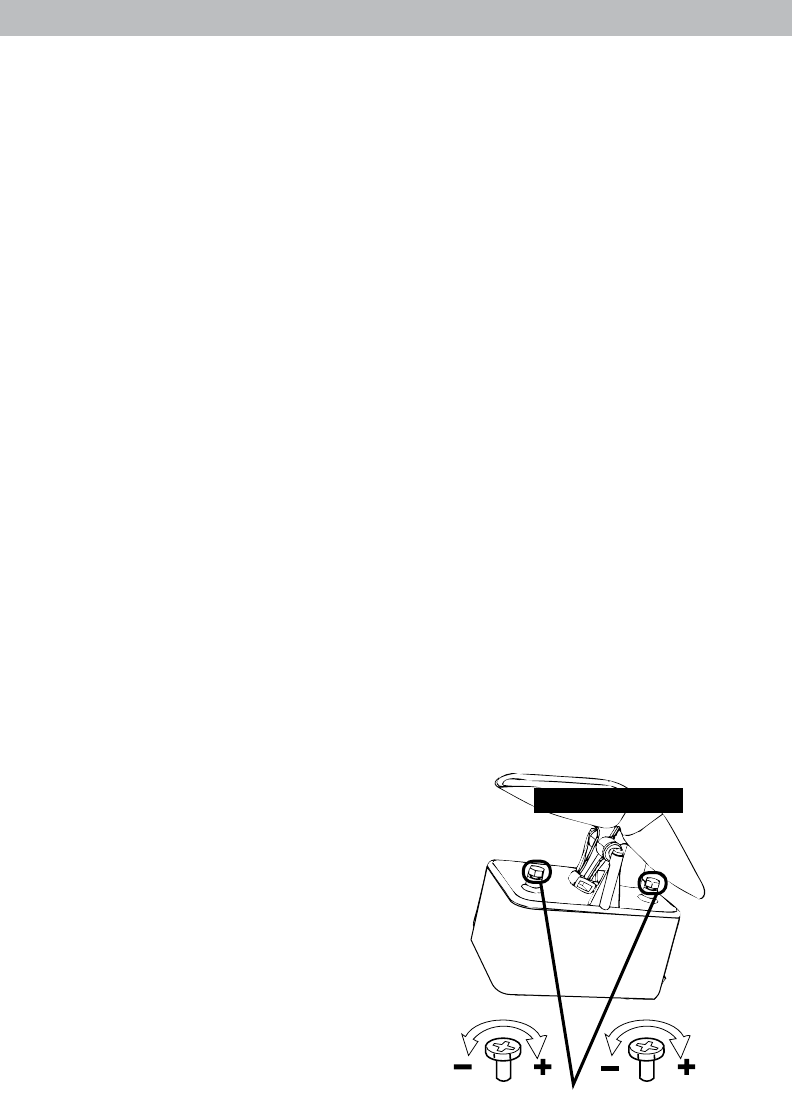
11
Calibration
Calibrate the Rain Gauge
The rain gauge can be calibrated to improve accuracy.
Items Needed: rain collector, display unit, plastic cup, pin, screw driver
1. First, place the rain collector on a level surface.
2. Place the display unit close by so you can monitor it during calibration.
3. Make a pin hole in the bottom of a plastic cup. Hold the cup over the rain
gauge and ll it with exactly 1 cup (8 oz.) of water, allowing the water to
slowly drip into the rain gauge. You should hear the internal cups tipping
and see the water drain through the rain gauge.
4. A few seconds after each cup tip, the display unit will display rainfall in
approximately 0.01”
(0.2 mm)
or more increments.
5. The cup of water should take more than 20 minutes to empty; a quicker
period will result in an inaccurate calibration. Try to simulate a normal
steady rainfall. When the cup is empty of water, the display unit
should register 2.20”
(55.9 mm).
Tips
• There should be nearly an equal number of water drops between cup tips.
If not, then adjust the calibration screws beneath the tipping lever until
an equal number of water drops are tipping the cups. Then, restart the
calibration procedure.
• If you don’t hear the cups tipping and see water dripping alternately out of
each drain, there may be an issue with the rain gauge or it’s adjustment.
Adjustment
If the rain gauge doesn’t register close to
2.20”
(55.9 mm)
after the cup is empty, make
an EQUAL adjustment to the two calibration
screws, located beneath the tipping cups.
Turn screws clockwise to increase rainfall;
turn screw counter clockwise to decrease
rainfall.
• To adjust the rainfall reading by 2%
turn both screws 1/4 of a turn.
• To adjust the rainfall reading by 4%
turn both screws 1/2 of a turn.
• To adjust the rainfall reading by 8%
turn both screws 1 full turn.
2 CALIBRATION SCREWS
COLLECTING CUP


















